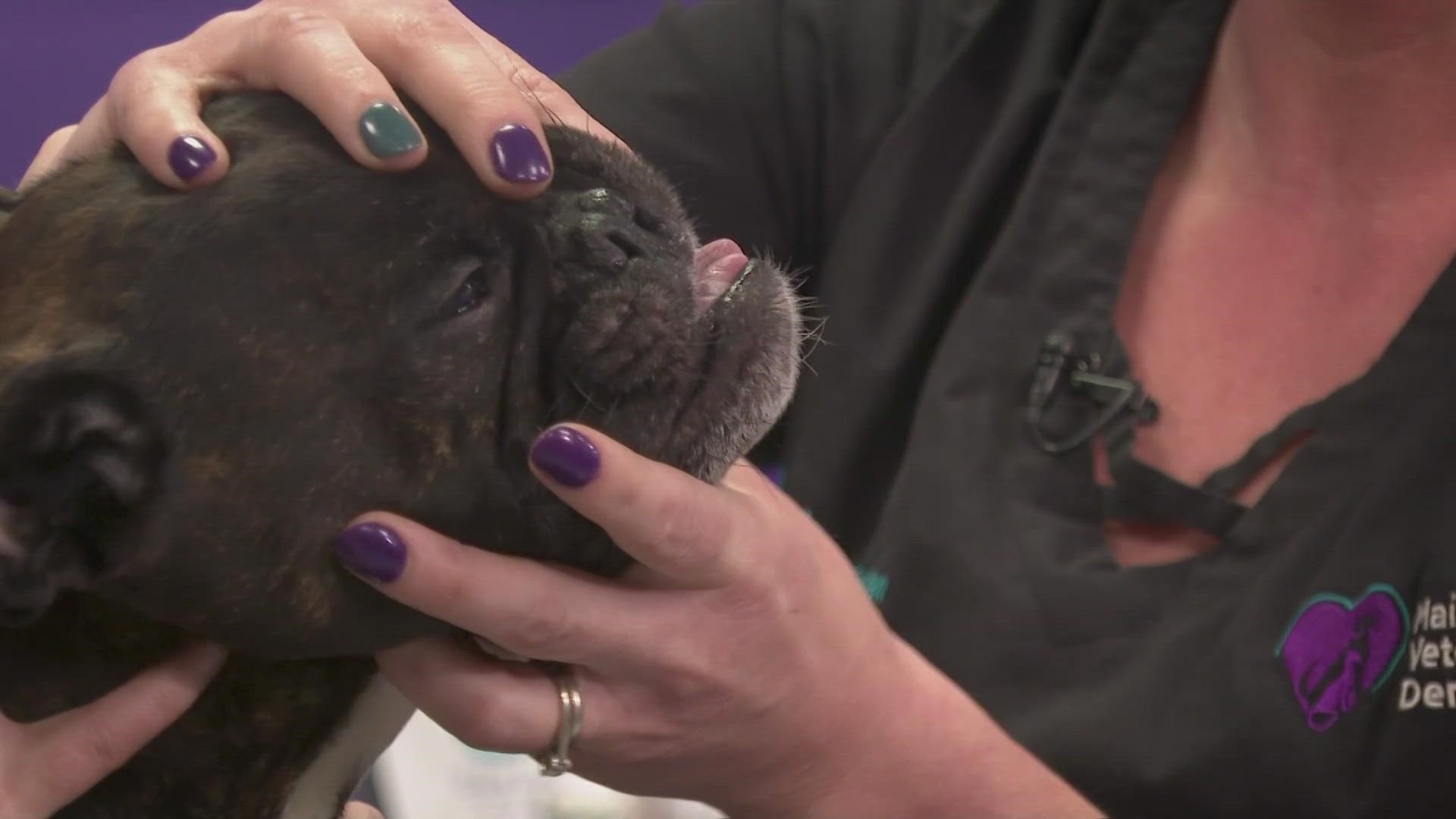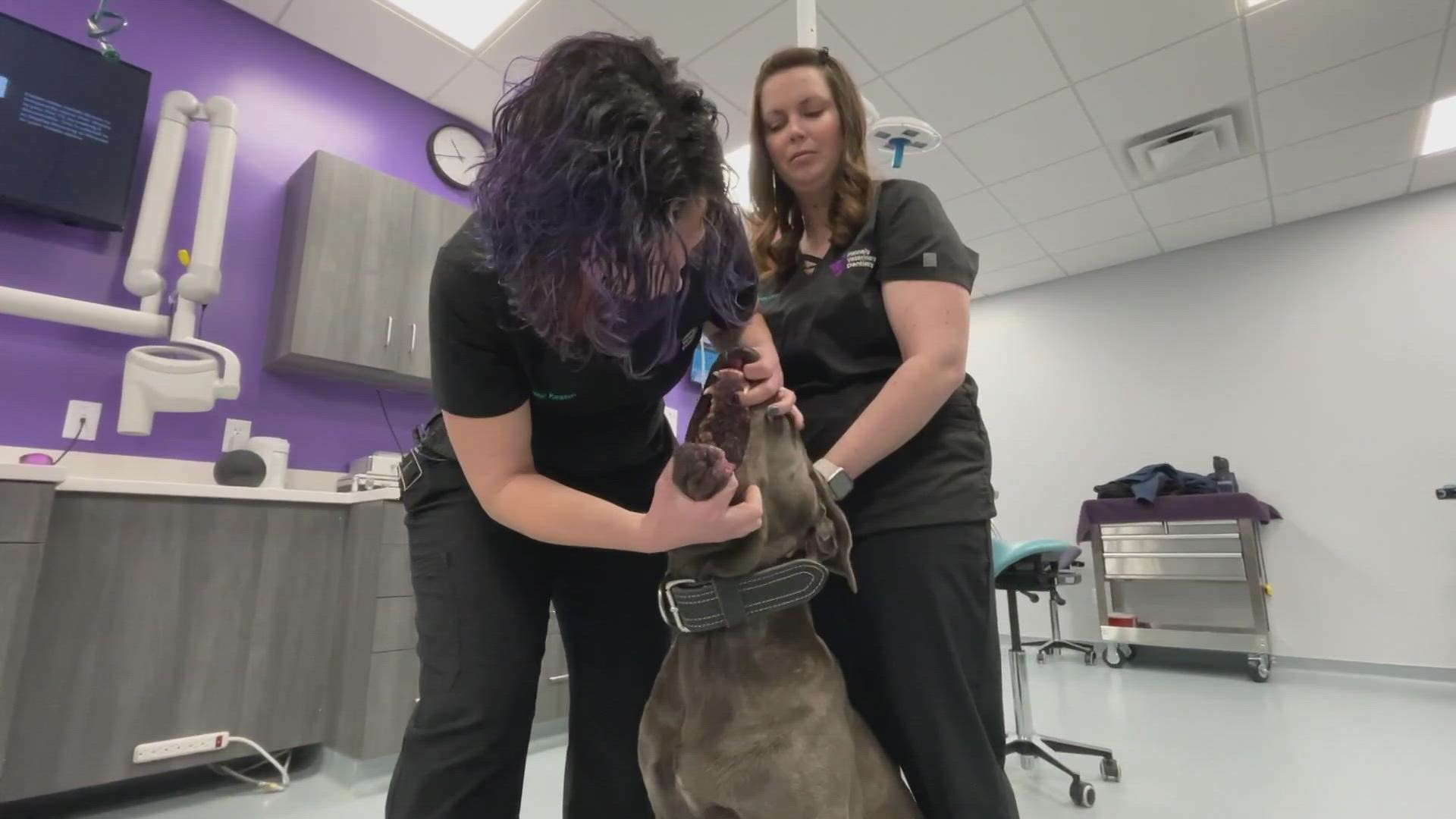WINDHAM, Maine — A new veterinary practice now open in Windham is focusing specifically on the dental health of pets in an effort to fill a gap of providers in Maine.
Mainely Veterinary Dentistry owner Dr. Jennifer Keaten said there are no board-certified veterinary dentists in Maine, a credential she is working toward. In the meantime, she wants to educate pet owners and other vets about the importance of caring for animals' teeth.
She said plaque, tartar, and gingivitis can mean more than just bad breath.
"Every time that pet chews, that bacteria is going into the bloodstream and bathing their organs in bacteria," Keaten said. "Regular cleanings and assessments by your veterinarian are super important because we don't know until we take those X-rays what's going on in there."
Keaten said two-thirds of dogs' and cats' teeth are under the gum line, and they are much larger than human teeth.
"If we wait until we see signs of dental disease, then there's potential there could be severe disease underneath that gum line that we're not able to see until we take the X-rays," Keaten said.
After helping pets get their teeth to a new baseline normal of cleanliness, she said she offers routine cleanings to pet owners to avoid any further dental issues.
Keaten said small dogs are more prone to dental disease and should have a cleaning roughly every six months, while larger dogs can go about 12 to 16 months between appointments.
The No. 1 concern she hears from pet owners is putting the animals under anesthesia. Keaten said dentistry requires less anesthesia than other medical procedures.
"Veterinary medicine has come a long way, and we do a lot of what human medicine does now. We're monitoring them super thoroughly. We're monitoring all the parameters under anesthesia," Keaten said. "It's not without risk, but it's pretty safe."
Once the initial assessment is done and the pet is under anesthesia, she said she will call and discuss what she found and check with the owner before proceeding with any treatment.
These procedures can range into the thousands of dollars range depending on the severity of a pet's dental disease. The new practice offers payment plans through third parties.
In the meantime, Keaten plans to host educational workshops about best practices for other vets who want to focus on oral health.
As for the signs of dental disease, Keaten noted to be observant of the following:
- If a pet is chewing on one side, they may have heavy tartar buildup on the opposite side, indicating they may have been avoiding chewing on that side because it hurts
- Teeth chattering
- Drooling
In early February, Keaten talked with NEWS CENTER Maine about the best and worst dental treats and toys for your pet as part of Pet Dental Health Month:


